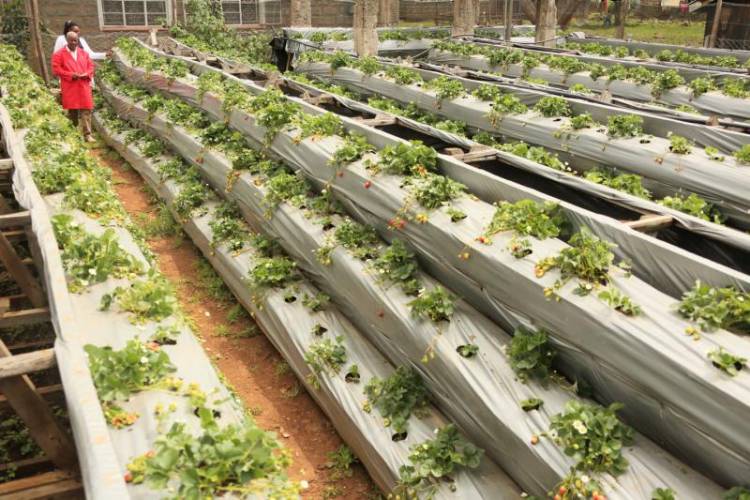×
The Standard e-Paper
Home To Bold Columnists

Ken Kinuthia and his wife Beth in their strawberry farm at ol Jororok in Nyandarua County. [Kibata Kihu, Standard]
A decade ago, Kenneth Kinuthia was a lumberjack, working across the country to find the best timber from various forests, cutting down trees and selling off the wood to dealers across the country.